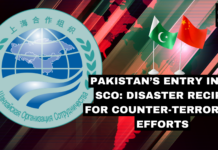Internet and mobile services was suspended in Pakistan as voters headed to the polls today. Following the internet blackout in Pakistan, Amnesty International’s interim deputy director for South Asia said the decision on election day was “a blunt attack on the rights to freedom of expression and peaceful assembly”.
“It is reckless to impede access to information as people head out to polling stations on the heels of devastating bomb blasts and what has been an intense crackdown on the opposition in the lead-up to the elections in the country,” Livia Saccardi, the Amnesty representative said.
Pakistan’s caretaker Prime Minister Anwar ul Haq Kakar had said late last night that he had “no intention” of shutting down internet services.
But this morning his government did exactly that, cutting mobile phone services across the country, citing “recent incidents of terrorism in the country”.
However, netizens were quick to point out that the terror incidents were happening in remote parts of the country, and not in the urban cities, where the internet and mobile services were also shut down.
PAKISTAN’S ELECTION: A farce and a tragedy
As per Time magazine, years from now, Pakistan’s 2024 election will be looked back on as a grim reminder that history can be both tragedy and farce at the same time.
“The country is experiencing one of its darkest periods in decades. There’s the resurgent terrorism, severe economic stress, worsening border tensions with Iran and Afghanistan, increasingly destructive climate change effects as seen during thee catastrophic floods of 2022, and, not surprisingly, record levels of public skepticism about the government’s capacity to fix all these problems,” writes Michael Kugelman, a well known Pakistani commentator for the Time Magazine. “There’s never been a more critical moment for a credible election. And yet, it will likely be more farcical than free and fair,” he adds.
These are Pakistan’s 12th general elections — the country’s latest attempt to deepen democratic roots. The powerful military establishment has ruled directly for more than three decades of the country’s journey as an independent nation since 1947.
It has influenced and intervened in politics even when not directly in power — a fact acknowledged by former army chief Qamar Javed Bajwa in November 2022.
Those allegations against the military’s involvement in politics have been amplified in recent weeks, amid a crackdown on Imran Khan and his party.
Earlier, the UN Organization of Human Rights High Commissioner (OHCHR) Volker Türk had also urged authorities in Pakistan to ensure that parliamentary elections this week were free and fair, his office, OHCHR, said this Tuesday, an appeal that may have come too late.
The UN OHCHR Spokesperson Liz Throssell said there have been no less than 24 reported instances in which armed groups have staged attacks against members of political parties.
TARGETING PTI, NO LEVEL PLAYING FIELD FOR IMRAN KHAN
The UN office also voiced concern over the pattern of harassment, arrests and prolonged detentions of leaders and supporters of the Pakistan Tehreek e Insaf (PTI) party, which is headed by former Prime Minister Imran Khan.
Multiple legal cases have been brought against Mr. Khan, which disqualified him as a candidate and sentenced him to long prison terms.
“We expect the higher courts will carefully review these conclusions in line with applicable due process and fair trial rights and Pakistan’s wider international human rights obligations; all eligible parties must be able to compete fairly,” Ms. Throssell said.
Khan, who captained Pakistan to cricket World Cup glory in 1992 and entered politics four years later, rose to power on a ticket of anti-corruption.
His party won elections in 2018, which many analysts say came with the approval of the country’s powerful military, a force that has dominated politics since Pakistan’s 1947 independence either through direct rule or behind the scenes.
A DULL ELECTION CAMPAIGN OWING TO PRE POLL RIGGING
In place of the usual campaigning fanfare that accompanies an election cycle, CNN reported that there was a sense of desolation among many of the country’s 230 million population, nearly 40% of whom are living in poverty, according to the World Bank.
Many young voters – the median age in Pakistan is just 22.7 – say they feel unseen and unheard, unable to pick the leader they want to guide the country for the next five years.
“Everyone can see where the preference lies. I wanted to give my first vote to Imran Khan but unfortunately, I don’t think that can happen now,” said Rabiya Arooj, a 22-year-old first-time voter from the capital, Islamabad told CNN.
“Our institutions are not working, the people responsible are not working for us, there is no freedom of speech. We are very distressed.”
